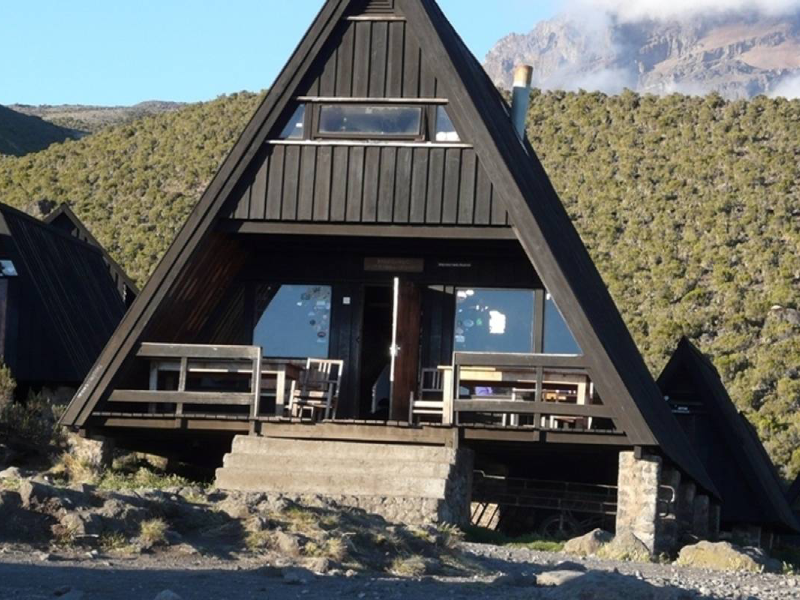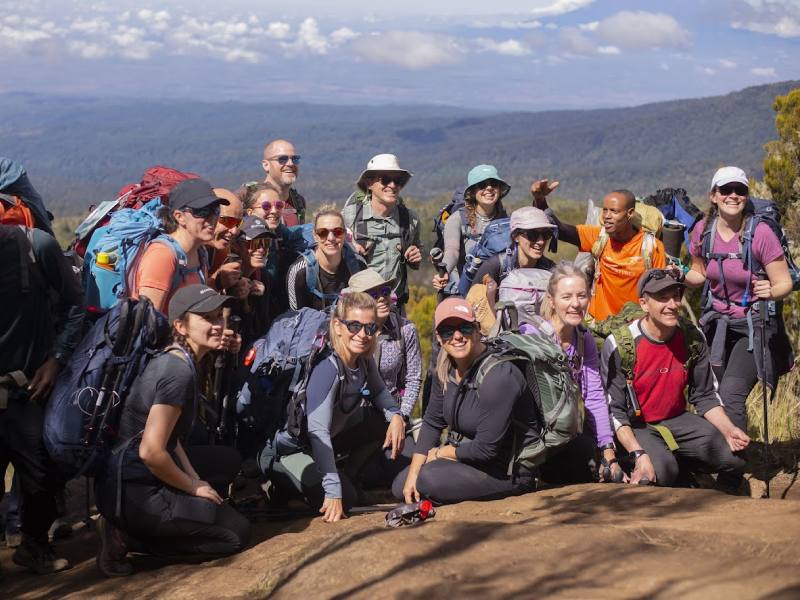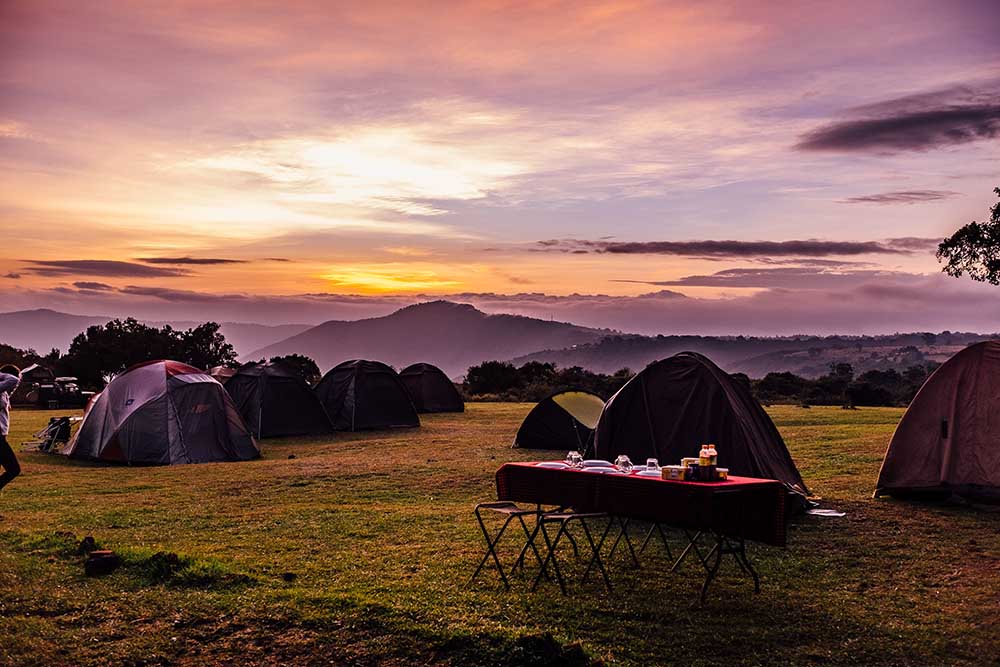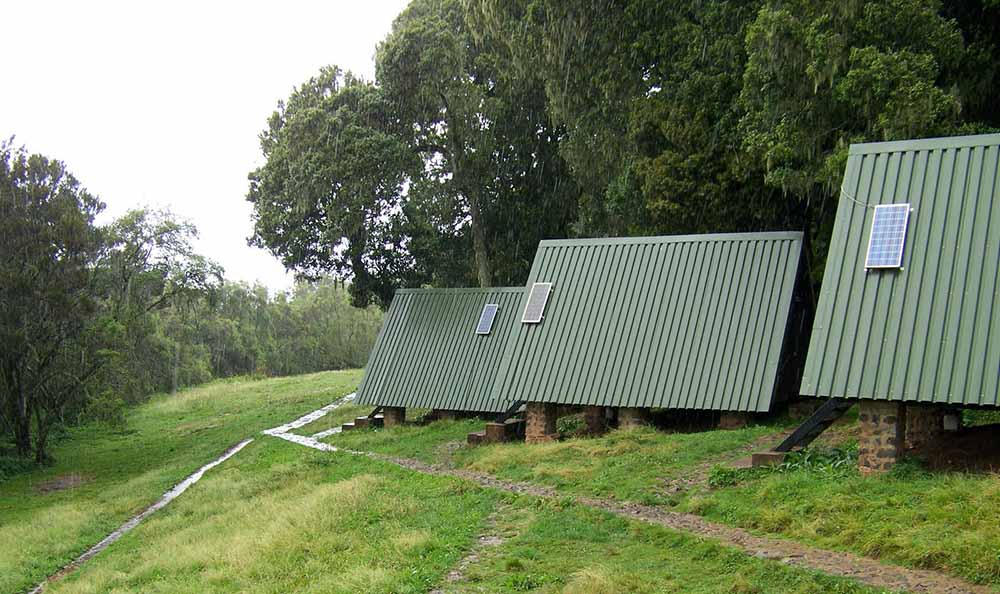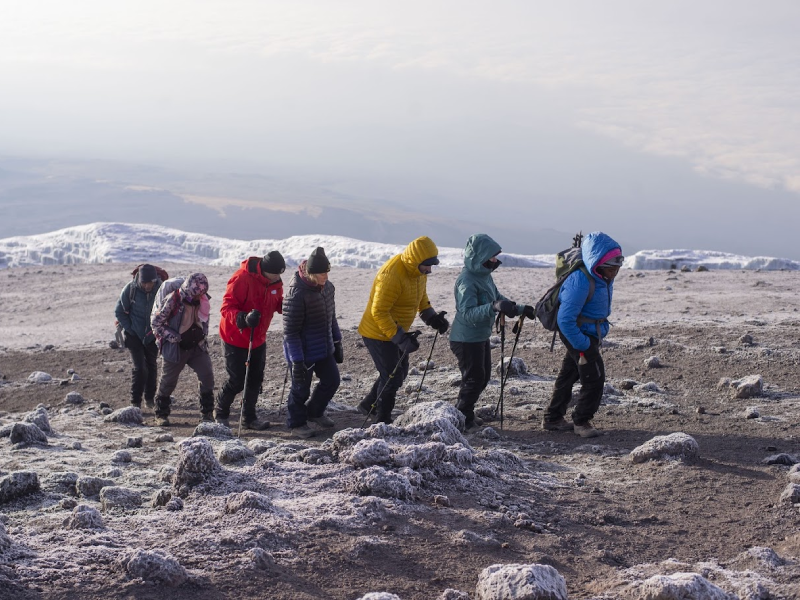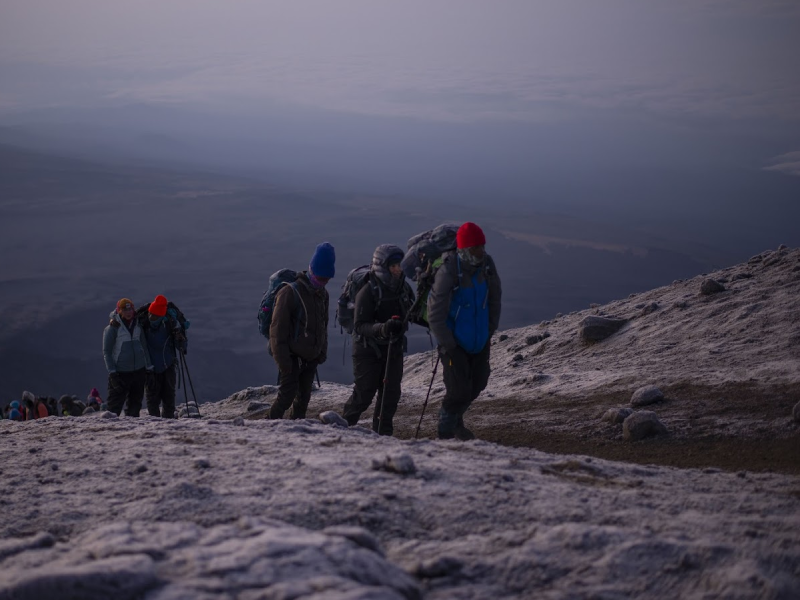
8 Days Kilimanjaro Climb - Machame Route Via Crater Camp
Kilimanjaro’s famous but rarely visited Crater Camp is located at 5790M on Kibo’s crater rim next to the Furtwrangler glacier, a short walk from Uhuru Peak. It is one of the most spectacular places on earth. The Crater Camp is set in alien environment of soft sand and vertical glaciers with excellent views of the ice walls of the Furtwangler Glacier the Reusch Crater and ash pit. Getting to the Crater Camp incurs considerable extra cost when compared to the more conventional treks on Kilimanjaro because of the extra work our porters have to undertake to carry food and camping equipment to such high altitude. A night at the Crater Camp can be added to any of our Kilimanjaro programs, it will be the highlight of your ascent of the mountain…….and possibly you’re entire life.
Day 1: From Machame Gate to Machame Camp
We’ll pick you up at your hotel and bring you to the main gate at Machame to register. While that is going on, our crew will be preparing the gear and supplies. Next, we’ll start along a trail through the high rain forest up to Machame Camp where we will spend the night.
- Elevation: From 1800 metres to 3000 metres
- Trekking distance: 11 kilometres
- Trek time: 5 to 7 hours
- Environment: Montane forest
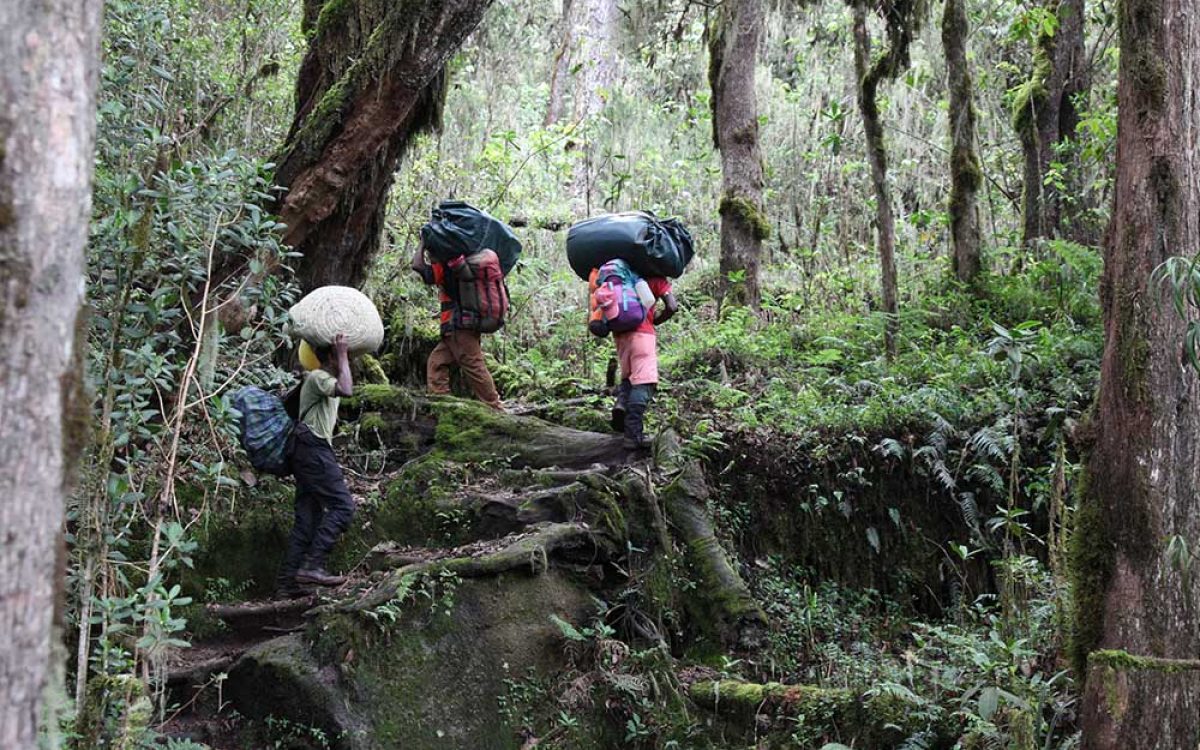
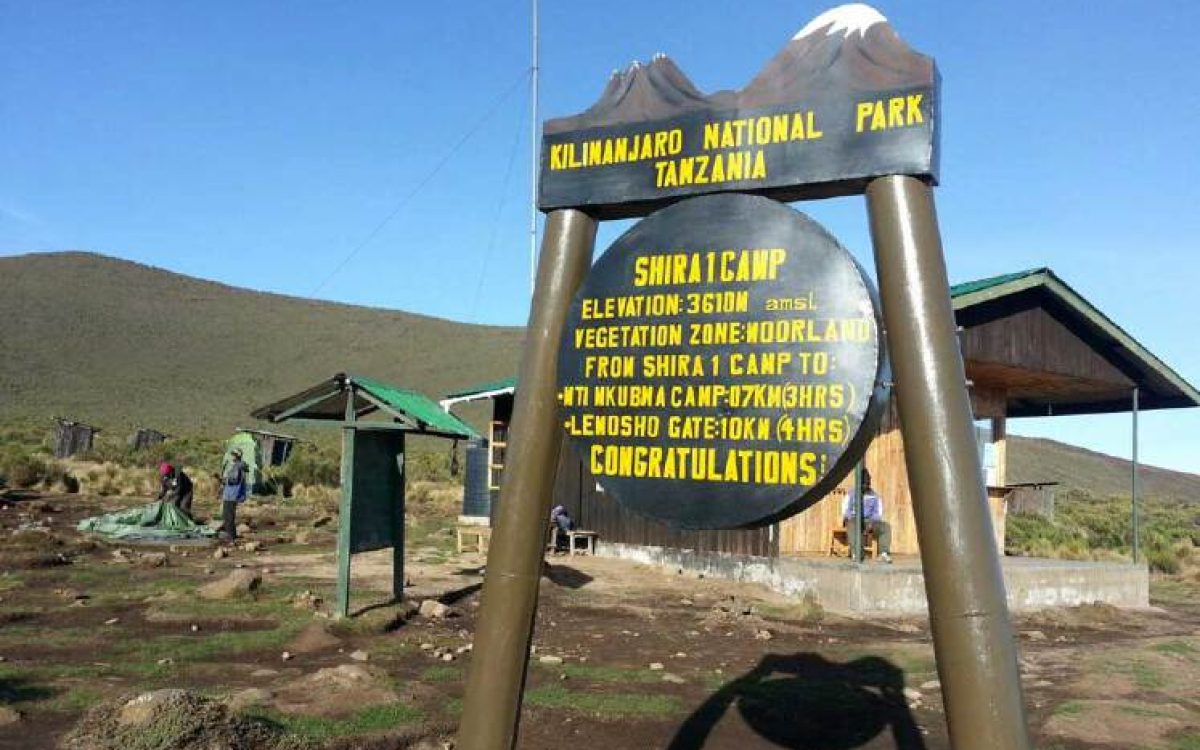
Day 2: From Machame Camp to Shira Camp 1
On day two we will leave the lush rainforest behind, trekking through high moorland until we reach Shira 1 Camp. Whilst most of the vegetation has been left behind, keep an eye out for the Giant Lobelia which few who have not explored Kilimanjaro have ever seen.
- Elevation: From 3000 metres to 3850 metres
- Trekking distance: 9 kilometres
- Trek time: 4 to 6 hours
- Environment: Moorland
Day 3: From Shira 1 Camp to Barranco Camp via Lava Tower
Going will start to get tough on day four, and you can expect to feel the first altitude-related symptoms of the trek. Lava Tower is 4600 metres above sea level. We will rest there for acclimatisation purposes, and have lunch as well. Because we like to ‘walk high, sleep low’, we will then descend into Barranco Valley to make camp for the night. The descent from Lava Tower is a great time to enjoy the scenery and take photos, especially of the Western Breach and the Great Barranco Wall. Camp is directly below the Wall, and sunsets here are amazing.
- Elevation: From 3850 metres to 3950 metres
- Highest point: 4600 metres (Lava Tower)
- Trekking distance: 12 kilometres
- Trek time: 6-7 hours
- Environment: Semi-desert
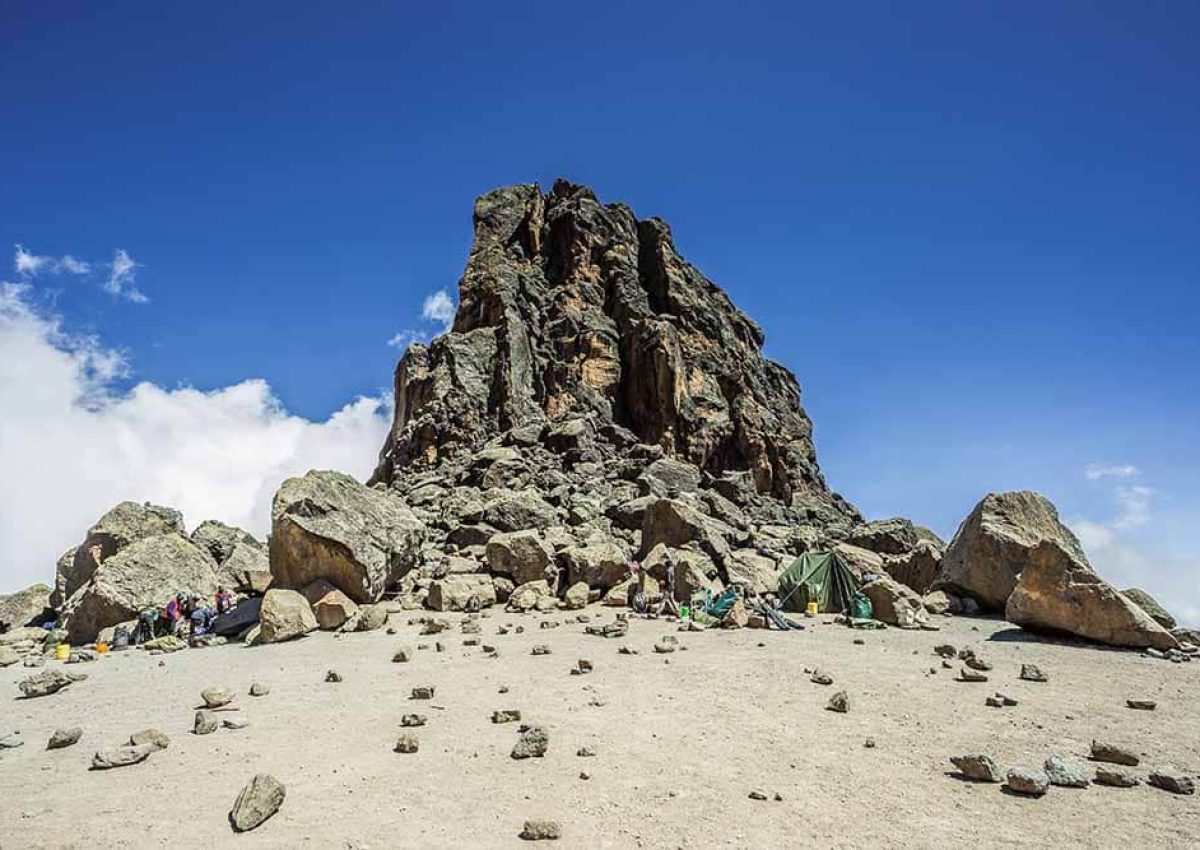
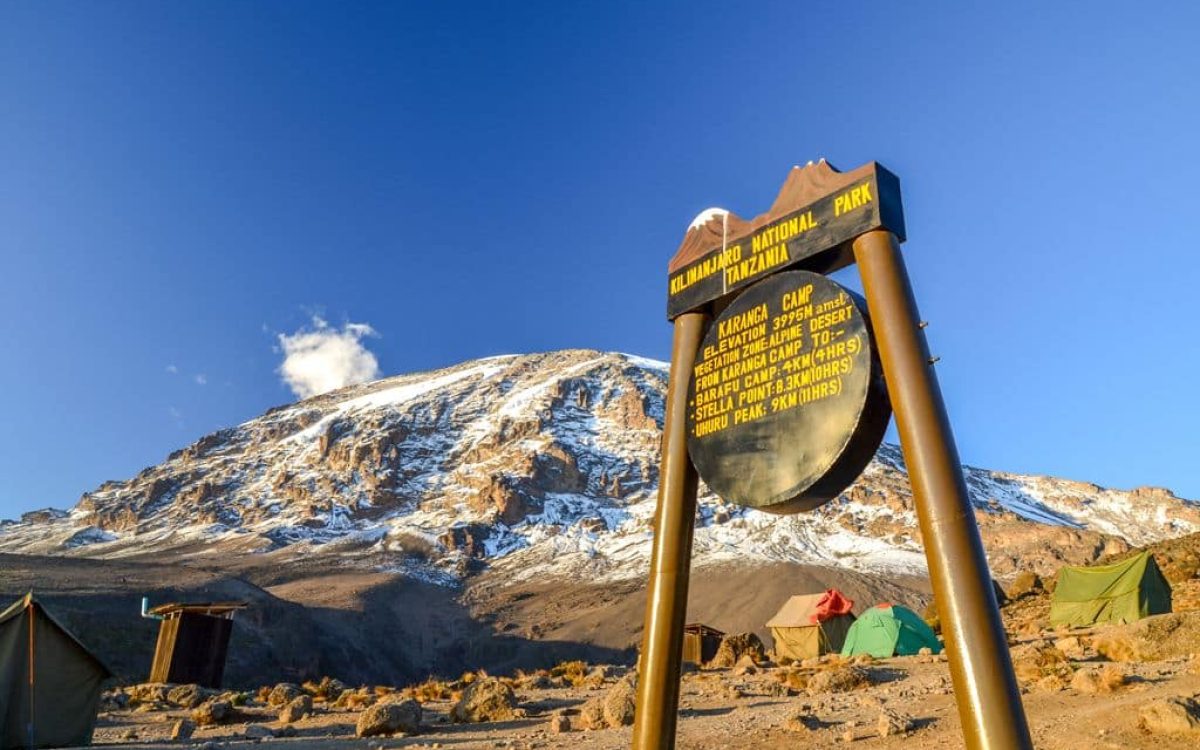
Day 4: Barranco Camp to Karanga Valley Camp
In another day of acclimatisation, we will climb to the top of the Great Barranco Wall. We’ll be well above the cloud layer here, and the views are amazing in every direction. Camp for the night will be low again, in the Karanga Valley beneath the Decken, Kersten and Heim Glaciers.
- Elevation: From 3950 metres to 3930 metres
- Highest Point: Great Barranco Wall
- Trekking distance: 7 kilometres
- Trek time: Around 4 hours
- Environment: Alpine desert
Day 5: From Karanga Valley Camp to Barafu Hut
From Karanga, we will go up the well-travelled Mweka descent trail, then turn off for Barafu Hut. Barafu Hut marks the end of the Southern Circuit, which offers views of the summit itself from many different angles. This is a short day, and you should take advantage of the down-time to rest up for the summit day tomorrow. Do take a bit of time to look about, though. You can see both Kibo and Mawenzi clearly from this vista.
- Elevation: From 3930 metres to 4600 metres
- Trekking distance: 6 kilometres
- Trek time: Around 3 hours
- Environment: Alpine desert
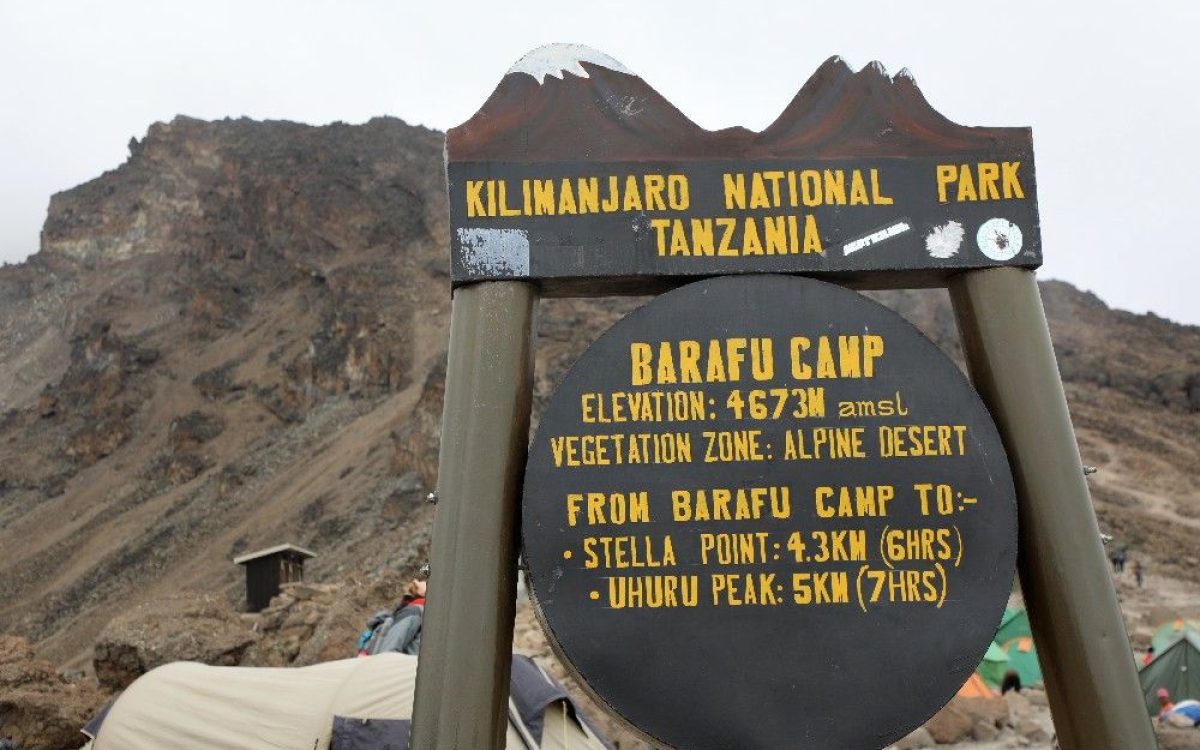
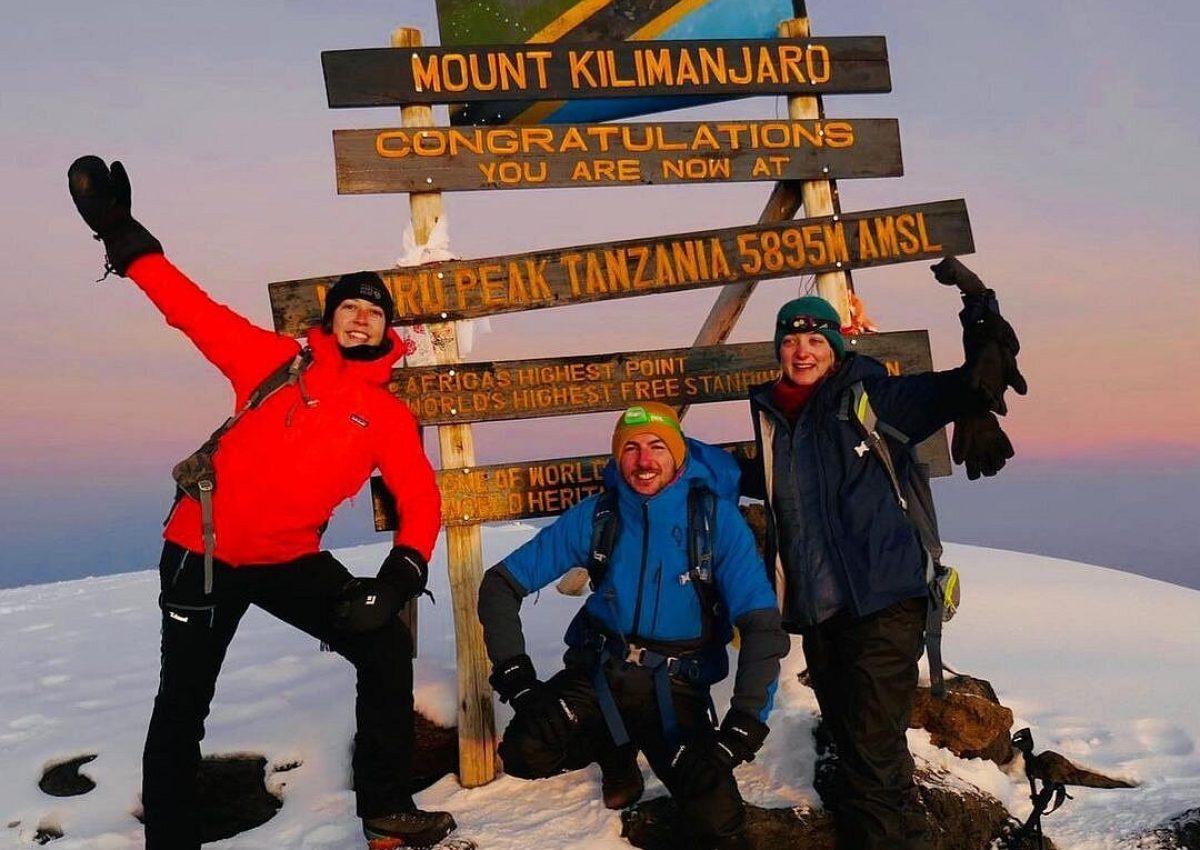
Day 6: From Barafu Hut to summit at Uhuru Peak, descent to Kibo Crater
We’ll wake at 7am and have a full breakfast before making the summit attempt. Our route takes us between the Rebman Glacier and the Ratzel Glacier. From there, we will go up heavy scree to reach Stella Point on the rim of the crater itself. We will have a short rest at Stella, which is a good time to enjoy one of the most spectacular views in Africa. Next it is on to the summit itself, Uhuru Peak. After another break for celebration and photos (weather permitting) we’ll begin the descent to Kibo Crater to camp for the night. Depending on the time of year, Kibo could be icy, snowy or sandy desert.
- Elevation: From 4600 metres to 5730 metres
- Highest point: 5895 metres (Uhuru Peak)
- Trekking distance: 8 kilometres
- Trek time: 7 to 8 hours
- Environment: Alpine desert
Day 7: Descent from Kibo Crater Camp to Mweka Camp
Well before dawn, we will set off over the rim to see the sun rise at the very top of Africa. We will then begin the descent, first to Barafu Hut for lunch then on to Mweka Camp, at a mere 3100 metres above sea level. The last stretch is over loose gravel, and you will need your poles.
- Elevation: From 5730 metres to 3100 metres
- Trekking distance: 12 kilometres
- Trek time: 6 to 8 hours
- Environment: Ice-capped summit, stone scree and moorland
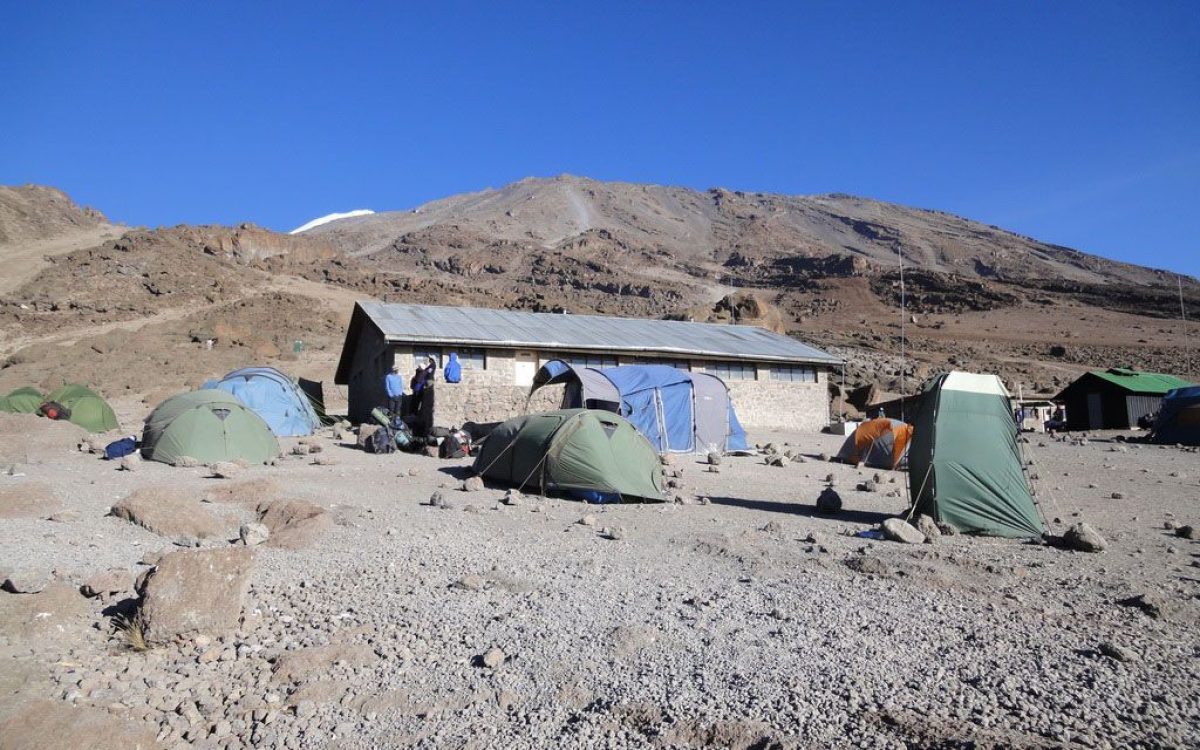
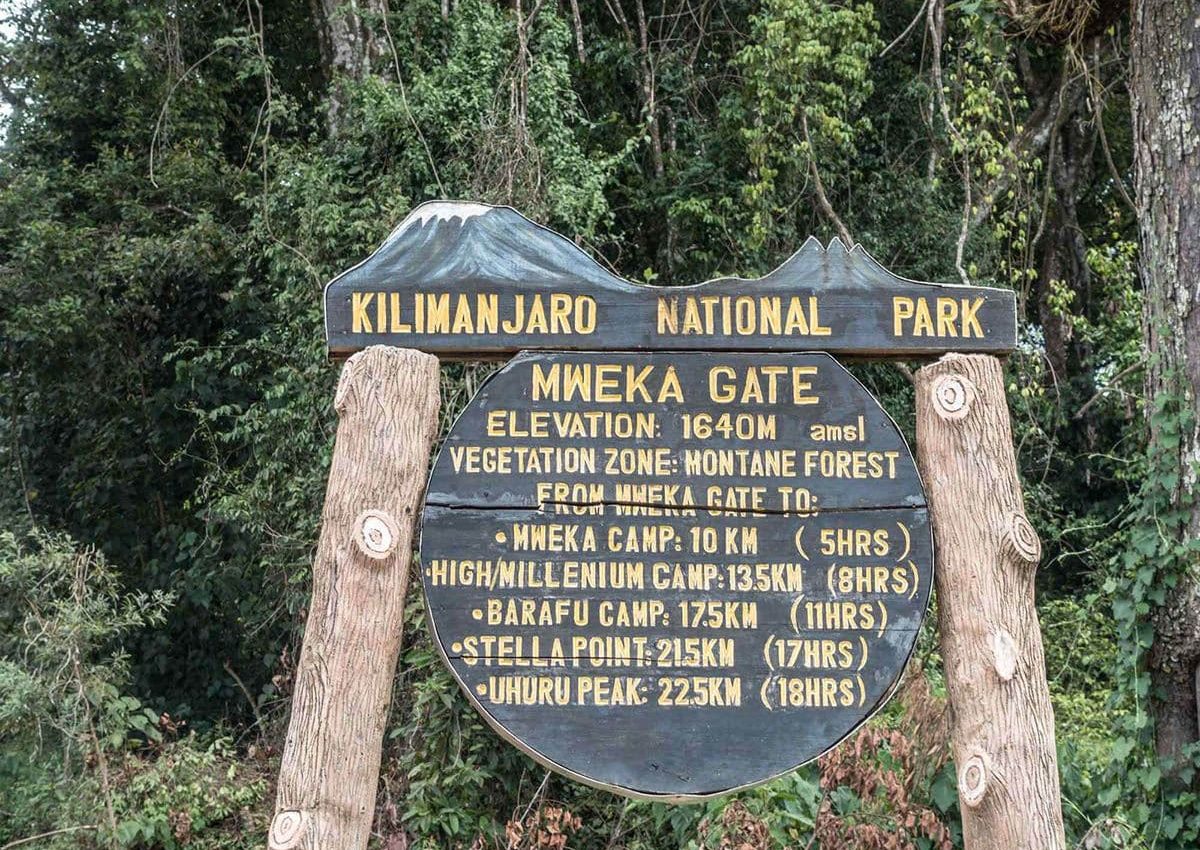
Day 8: Descent rom Mweka Camp to Mweka Park Gate
The last leg of our trek will be a short but probably muddy descent to Mweka Park Gate. it is likely to be rainy or hot, so prepare for both. After picking up your certificate for summiting Kilimanjaro, we’ll take you to Kindoroko hotel in Moshi for celebration or sleep, depending on your mood and energy.
- Elevation: From 3100 metres to 1800 metres
- Trekking distance: 8 kilometres
- Trek time: 3 to 4 hours
- Environment: Montane forest
What is included:
Airport transfers (to/from Kilimanjaro International Airport)
All park fees and mountain permits
Professional mountain guides, porters, and cook
Tents and camping gear (except sleeping bags, unless stated)
All meals and drinking water on the mountain
Accommodation before and after the climb (in Moshi or Arusha)
Rescue fees (for emergencies)
Fair wages for crew (as per KPAP standards)
What is excluded:
International flights
Tanzanian visa fees
Tips for guides, porters, and cook (expected but not included)
Personal trekking gear (sleeping bag, clothing, boots)
Travel insurance (mandatory for most operators)
Snacks, energy drinks, and bottled beverages
Extra hotel nights (before or after the trek, if needed)
Portable toilet (optional on some routes at extra cost)
